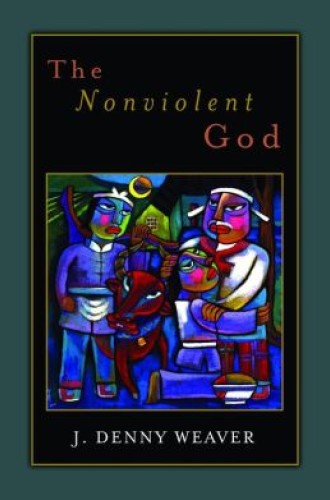The Nonviolent God, by J. Denny Weaver
Violence sells. Take a trendy teen novel featuring beautiful youths pitted against each other in mortal combat, adapt it to the big screen, and you will have a blockbuster on your hands. Organize a team of men or women who are willing to risk bodily injury in their pursuit of athletic glory, and the fans not only will come, they will empty their wallets and clamor for more. American culture has long assumed that the vitality of our economy is dependent on our ability to maintain a strong and mobile fighting force, so few people object to the allocation of a significant portion of our tax dollars to the building of weapons whose primary purpose is to kill and to maim. Indeed, there is a tacit assumption that violence is simply unavoidable. It is the way of the world, we say, and it is sometimes necessary if peace and prosperity are going to prevail. Anyway, violence sells, and anything that keeps our economy moving can’t be all bad.
So yes, violence sells, but does it save? It is the way of the world, but does it reflect the character of God as revealed in Christ? If not, shouldn’t we question its place in the traditional theology of the church?
These are the concerns at the heart of J. Denny Weaver’s book, which is a more systematic elaboration of a topic introduced in his earlier work The Nonviolent Atonement. Weaver is convinced that the divinely sanctioned violence featured in the church’s atonement models—especially the Christus Victor, satisfaction, and substitutionary views—is a regrettable diversion from the original message of Jesus. He bases his conclusion on a hermeneutical model that he refers to as the “narrative Christus Victor,” which affirms that God’s love for the world is most clearly demonstrated not in Christ’s suffering on the cross but in Jesus’ resurrection: God’s victory over death and the powers of evil in the world.






